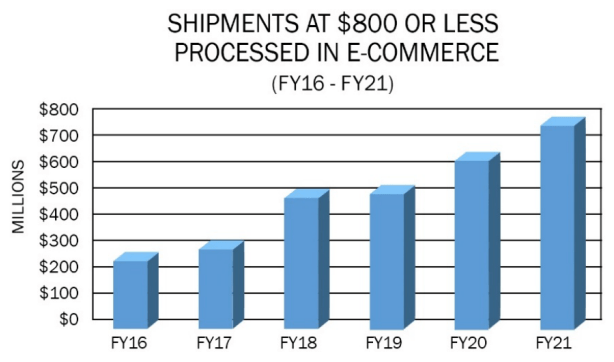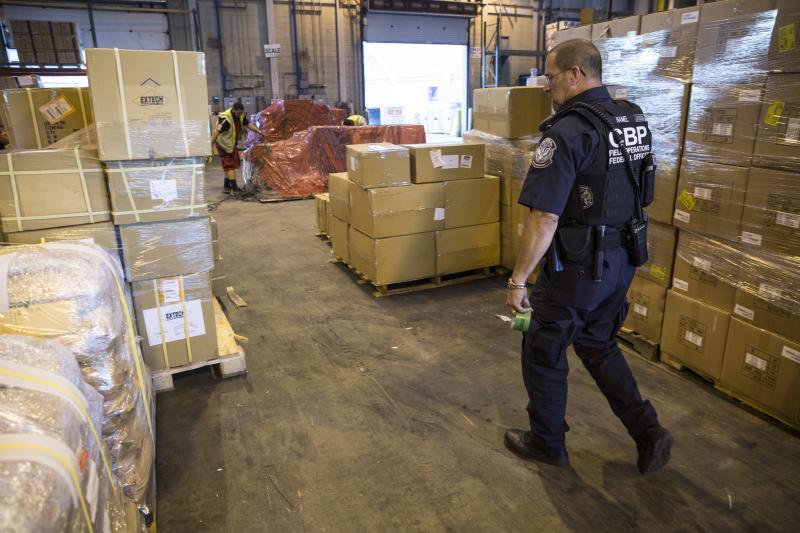E-commerce maintains a growing trend in imports to the United States, highlighted the Office of Customs and Border Protection (CBP).
These purchases are usually shipped via international mail and express courier services.
Notably, the total volume of de minimis shipments (shipments valued at $800 or less) increased across all transportation modes from fiscal year 2020 to fiscal year 2021.

The largest increase was in the air environment, where de minimis shipments advanced approximately 23% with more than 660 million dollars of shipments in fiscal year 2021.
During the previous year, CBP experienced a significant decrease in imports in the air environment, as a result of the Covid-19 pandemic.
The substantial increase in fiscal year 2021 indicates that air shipping volumes have returned to pre-pandemic levels.
According to CBP, adversaries seek to exploit this volume, threatening US economic interests with risks in the form of intellectual property rights infringement, as well as security risks stemming from poor quality and untested consumer products.
In fiscal year 2021, 89% of seizures stemming from property rights violations were found in express and international mail shipments.
E-commerce
In addition to the exponential growth in small package volume and associated risks, this growth has created a paradigm shift in the traditional roles and responsibilities associated with importing into the United States.
Traditional supply chain roles within the e-commerce industry are evolving to meet consumer demand with some sales platforms now acting as logistics providers, marketing platforms handling electronic payments, and startups vying to meet consumer demand.
This change has also led to the creation of a new class of importers: everyday consumers unfamiliar with laws and trade requirements.
Consumers now initiate most imports, presenting CBP with additional challenges.
To address these challenges, CBP launched the Section 321 Data Pilot in which CBP and volunteer participants from the business community are collaborating to secure e-commerce supply chains and protect American consumers.
The purpose of the pilot is to enhance CBP’s ability to identify and target high-risk e-commerce shipments, including narcotics, weapons, and products that pose a danger to the public’s health and safety.
In January 2020, the first nine pilot participants were selected: Amazon, eBay, Zulily, FedEx, UPS, DHL, technology company PreClear, as well as logistics providers XB Fulfillment and BoxC Logistics.
The pilot program was also expanded to allow international mail and ocean shipments.
In August 2021, CBP extended the current pilot programs through August 2023 for further evaluation.
![]()

